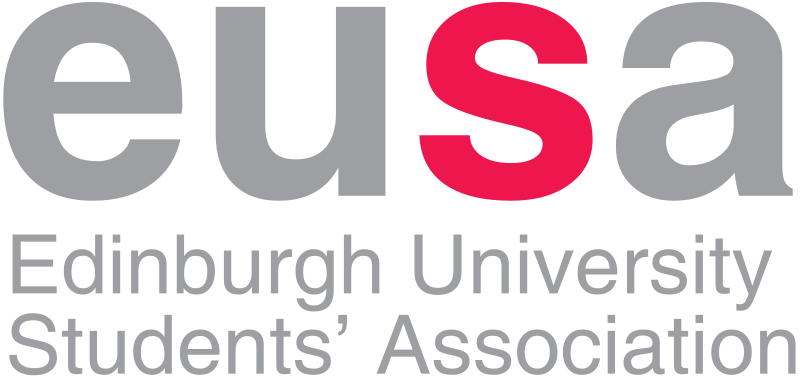As pressure mounts to revise university examination procedures to mitigate travel costs for international students, political actors and officials on all sides have loudly promised action.
Elected student representatives have publicly urged reform. Edinburgh University Students Association (EUSA) released two statements on the issue in the span of a week, promising “to continue to look for a solution”. A special Academic Committee meeting has been convened for this week to allow students to interact directly with EUSA and university representatives on the topic.
Yet for all the kindred rhetoric, interviews with The Student have revealed underlying rifts of discord and distrust among those pushing for solutions. And even where common ground exists, concrete answers have proven much more elusive than promises.
“The Sabbs [EUSA sabbatical team] have completely rolled over on this issue,” Maxwell Greenberg, former International Students Action Group Convener, told The Student, capturing a sentiment conveyed by other elected representatives in recent days.
“This isn’t something that has been forgotten,” EUSA president Briana Pegado countered to The Student.
“I know how much of a concern this is for students.”
Looming over all debate on the matter are the complications presented by scheduling requirements of the Disability Office. As detailed in the EUSA press releases, students are assessed for disabilities throughout the academic term. Exam schedules are thus subject to last minute conditions, which may arise as late as seven weeks into the term.
Seven weeks allow for an often-necessary flexibility for students to apply for disability provisions. But they also allow for a dramatic increase in ticket prices for flights home.
“It’s a very tricky situation,” Jan Gardiner, assistant director for the university Disability Office, told the Student.
“Our focus is on ensuring that disabled students that need exam adjustments have those adjustments in place.”
The conflicting priorities have driven a wedge into the political discourse. While all sides profess to equally respect the interests of both students with disabilities and international students, the language used differs notably.
“It has become clear that releasing the exam dates earlier…would not be possible,” the EUSA pronouncement stated.
“As it’s presented to us now there is no wiggle room, but I don’t know if that’s necessarily the case,” Constantine Ivanis, current International Students Action Group Convener told The Student.
“It’s wildly unfair for the University and the Sabbs to say that change is impossible.” Greenberg added. “Change isn’t impossible, change is difficult.”
Behind the scenes, a particular point of contention has centred on the perception that elected representatives have been excluded from the conversation by the EUSA sabbatical team. Several conveners, past and present, expressed dismay at the haste of EUSA’s first press release without consultation with those who ran on the issue last spring.
“I wasn’t informed at all of the Sabbatical press release, despite the issue forming part of my manifesto,” Jonathan Ainslie, Law School Convener, told The Student.
He continued: “I find it astonishing that Sabbatical statements on major policy issues should be embargoed from elected members of Student Council until the day of their release. This kind of behaviour is an emerging trend with EUSA, and I think that it ought to be curtailed as soon as possible.”
“For us the door was never open,” Ivanis agreed. “We never were part of the conversation and we never consulted with them before this release came out.”
Pegado took issue with the characterisations.
“I think the process was extremely fair,” she replied.
“The process was fair because ultimately this is an issue for the university to address. EUSA conducting research to get a sense of the current state is completely acceptable.”
All eyes are now turned to the 14th October Committee meeting. Open to the student body and with university and EUSA officials in attendance, the meeting has been billed as “a springboard for ideas on other possible solutions we could look into to tackle this issue.”
Optimism is rife on all sides. Yet despite the broad pronouncements, few actionable solutions have been advanced. Moreover, when given a chance to make suggestions, all political actors have passed the responsibility onward.
In reference to the meeting, a statement provided to The Student said only that “the University has offered to meet EUSA representatives to discuss the outcome.”
Pegado, in turn, described EUSA’s aim as simply: “to canvass the views of students rather than present the options because currently there are no clear options. That is exactly what I have asked the university to look into.”
In contrast, Greenberg said: “The question is not what students should do to work around a lethargic university bureaucracy, but what reforms the university bureaucracy could undertake to make students’ lives easier and reduce costs for international students.”
If the emerging climate of uncertainty seems circular, it is in part a result of the sheer complexity and sensitivity of the issues involved. Uniting all sides however is the conviction that direct discourse, such as the kind hoped for Tuesday night, will eventually lead to resolution.
“I think we can find a solution and I am going to do everything in my power to make sure no one is resting on their laurels,” Pegado said.

